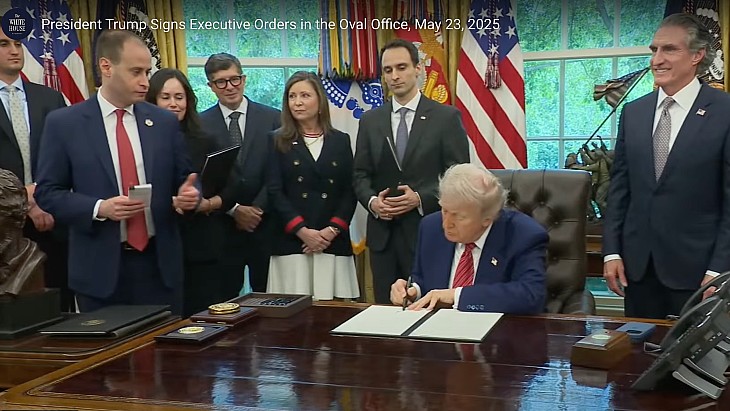Bulgarian parliament votes to switch from Russian nuclear fuel
.jpg)
The motion was submitted by the chairman of the Commission on Energy, Delyan Dobrev. The decision aligns with European Union directives on the diversification of energy supplies, and follows the Russian war with Ukraine.
The motion called on the government to support the country’s Nuclear Regulatory Agency in assessing and licensing alternative fuel suppliers.
Energy Minister Rossen Hristov told reporters afterwards that a special unit for nuclear competences had been established and was "now in the home stretch of concluding a contract with experts, including high-level international experts to take on the process of consultation and ranking of the bids expected to be made, by at least two companies," according to a Bulgarian News Agency report.
It also reported that he had said the licensing process for the nuclear fuel would be carried out by the independent body and there would be no interference "to either speed it up or omit rules".
Kozloduy is a large nuclear power plant in the northwest of Bulgaria on the Danube River that provides about 34% of the country's electricity. It features two Russian-designed VVER-1000 units currently in operation.
All front end fuel cycle services in Bulgaria have been provided by Russia's TVEL through Techsnabexport (Tenex). As part of a programme to diversify its nuclear fuel supply, in February 2021, the Kozloduy plant signed an agreement with Westinghouse to license Westinghouse VVER-1000 fuel for Kozloduy. Westinghouse’s VVER-1000 fuel has already been widely used in Ukraine’s VVER-1000 fleet. In April this year, Framatome launched Framatome Bulgaria to support the three-year services contract between the company and the Kozloduy plant.










..._58412.jpg)
